
Philosophy is a rather complex topic and most philosophers have complicated minds and personalities. They often dabble with topics about the meaning of life, the true nature of reality, and mathematical and physical concepts of the universe and thus they often end up disappointed in society and the whole world.
Not just that – many philosophers struggle with depression and suffer from mental illness.
The sheer number of philosophers who at least partly lost their minds is staggering. In this list, we’re bringing you the top 10 philosophers who struggled with depression and found themselves teetering on the edge of insanity.
Before continuing, we’d just like to express our admiration for those brilliant philosophers, but we’d also like to emphasize the prevalent challenge with mental health among people who fiddle with deep philosophical questions.
Related:
Friedrich Nietzsche (1844-1900)
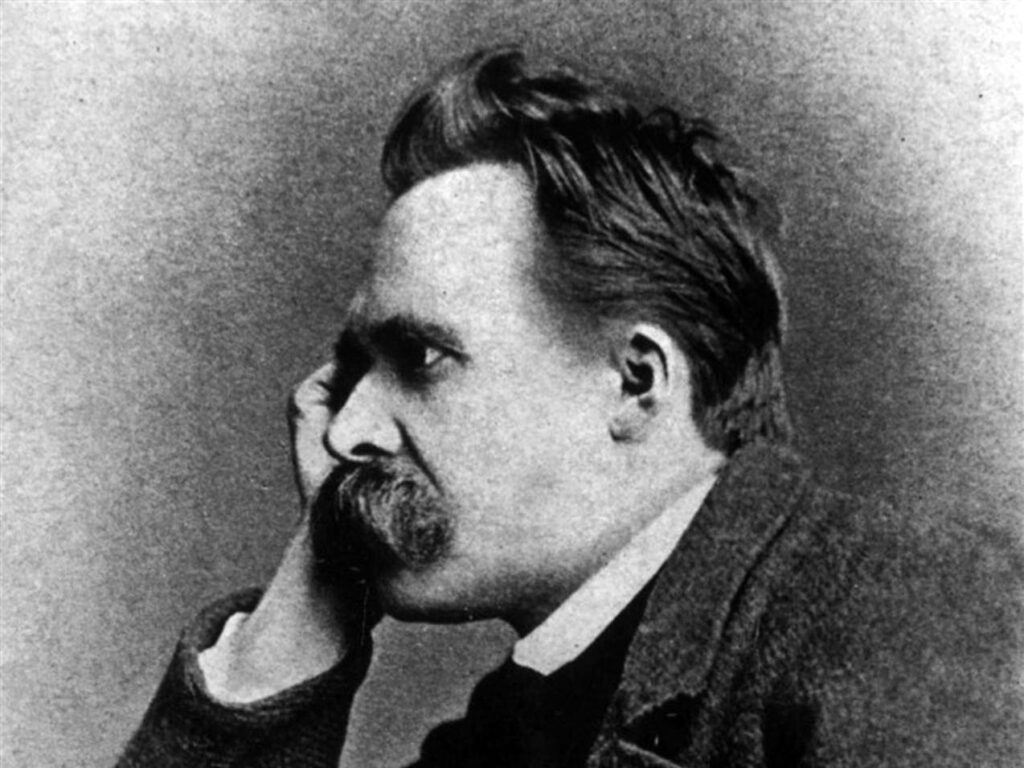
Friedrich Nietzsche, the enigmatic philosopher behind the concept of the “Übermensch” and “Eternal Recurrence,” descended into madness during the last years of his life. Nietzsche’s decline into insanity is believed to be linked to syphilis, a disease that tormented his mind and body. His mental breakdown, marked by erratic behavior and delusions, left him in the care of his family until his death in 1900.
Interesting Fact: Nietzsche’s influential sister, Elisabeth Förster-Nietzsche, distorted his ideas to suit Nazi ideology, tarnishing his legacy for decades. Nietzsche’s philosophical work is also characterized by a poetic and aphoristic style that challenges conventional academic writing.
Ludwig Wittgenstein (1889-1951)
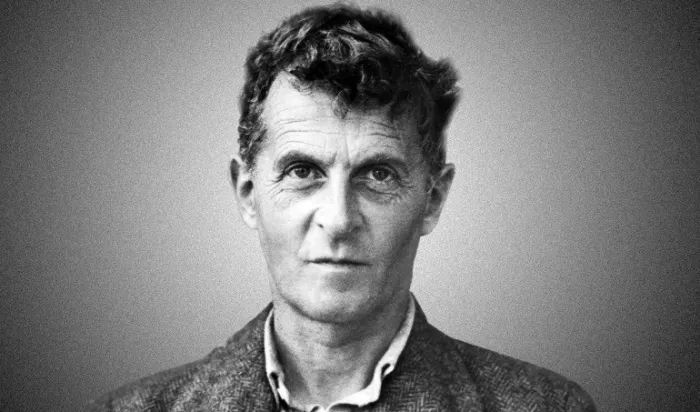
Ludwig Wittgenstein, a pivotal figure in the philosophy of language, dealt with internal conflicts that led to periods of mental instability. Wittgenstein’s early masterpiece, the “Tractatus Logico-Philosophicus,” was followed by a retreat from philosophy and an intense self-examination. His struggles with his identity, sexuality, and the demands of academia contributed to a sense of isolation and inner chaos.
Interesting Fact: Wittgenstein served as a soldier in World War I, an experience that deeply affected his philosophical outlook and contributed to his later reflections on language. Wittgenstein’s later work, “Philosophical Investigations,” marked a significant departure from his earlier ideas and emphasized the practical use of language in everyday life.
Related: Will the World Ever Speak One Language?
Arthur Schopenhauer (1788-1860)
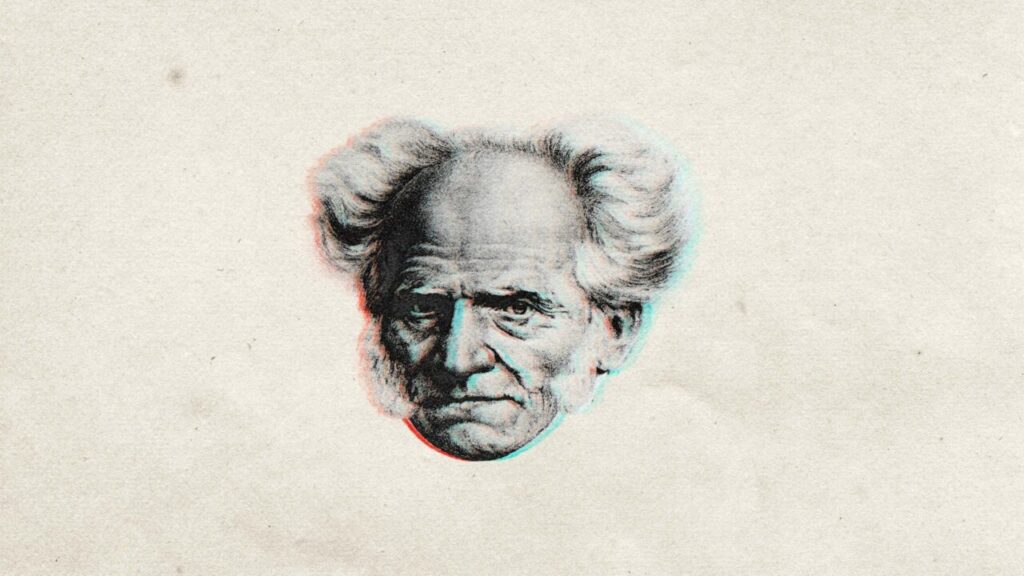
Arthur Schopenhauer, renowned for his philosophy of pessimism, grappled with intense mental struggles that mirrored the austerity of his ideas. The weight of personal losses and a preference for solitude deepened Schopenhauer’s sense of discontent. His withdrawal from society, marked by eccentric behaviors and a close bond with his dog (poodle), Atman, isolated him further. In his final years, paranoia and existential pessimism intertwined even more.
Interesting Fact: Schopenhauer adored his poodle, Atman, and even willed a significant part of his estate to ensure the well-being of his faithful companion after his death. Schopenhauer’s influence extended to artists and writers, including Richard Wagner and Leo Tolstoy.
Jean-Jacques Rousseau (1712-1778)
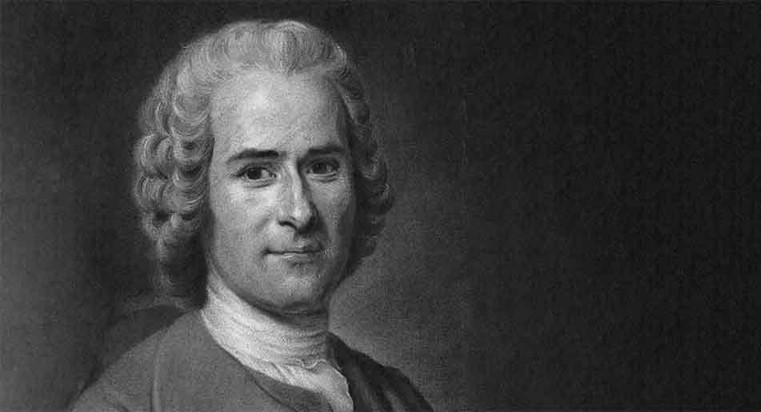
Jean-Jacques Rousseau, a pivotal figure in the Enlightenment, faced a tumultuous inner life marked by paranoia. Despite shaping political philosophy with works like “The Social Contract,” Rousseau’s mental health deteriorated. His paranoia, fueled by the belief that he was the target of vast conspiracies, ultimately contributed to his sense of isolation and the unraveling of his sanity.
Interesting Fact: Rousseau’s “Emile, or On Education” revolutionized educational theory and practice, emphasizing the importance of nurturing a child’s natural instincts. His autobiographical work, “Confessions,” provided unprecedented insights into his personal life and struggles.
Blaise Pascal (1623-1662)

Blaise Pascal, a mathematical prodigy and influential thinker, coped with religious passion and existential angst. Pascal’s Jansenist beliefs and intense introspection contributed to his inner uproar. His mental instability, punctuated by intense mystical experiences, reflected the intersection of his scientific pursuits and his profound religious convictions.
Interesting Fact: Pascal made significant contributions to probability theory, paving the way for advancements in the understanding of chance and randomness. His “Pensées,” a collection of thoughts on theology and philosophy, was published posthumously and remains a classic work in Western literature.
Immanuel Kant (1724-1804)
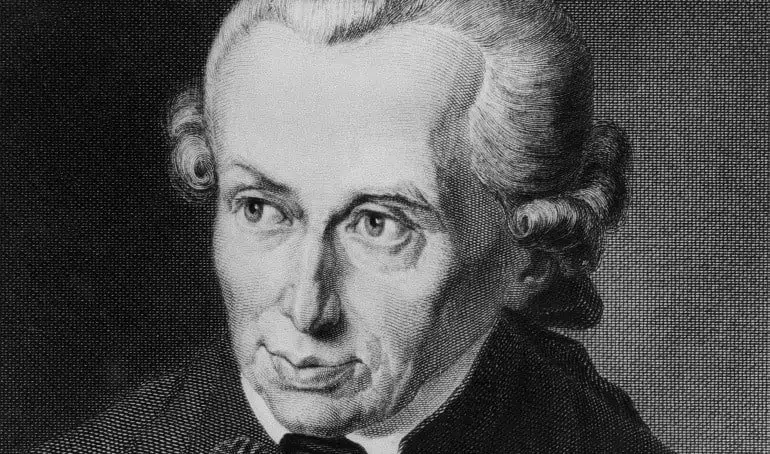
Immanuel Kant faced periods of mental distress in his later years. Kant’s dedication to systematic philosophy and his insistence on a rigid daily routine began to unravel as he experienced episodes of depression. The toll of his intellectual pursuits, combined with the demands of his personal life, left Kant with mental health challenges.
Interesting Fact: Kant’s “Critique of Pure Reason” revolutionized epistemology and metaphysics, challenging traditional views on the nature of human knowledge. Kant’s categorical imperative, a key concept in his moral philosophy, emphasized the importance of ethical principles based on reason.
Søren Kierkegaard (1813-1855)
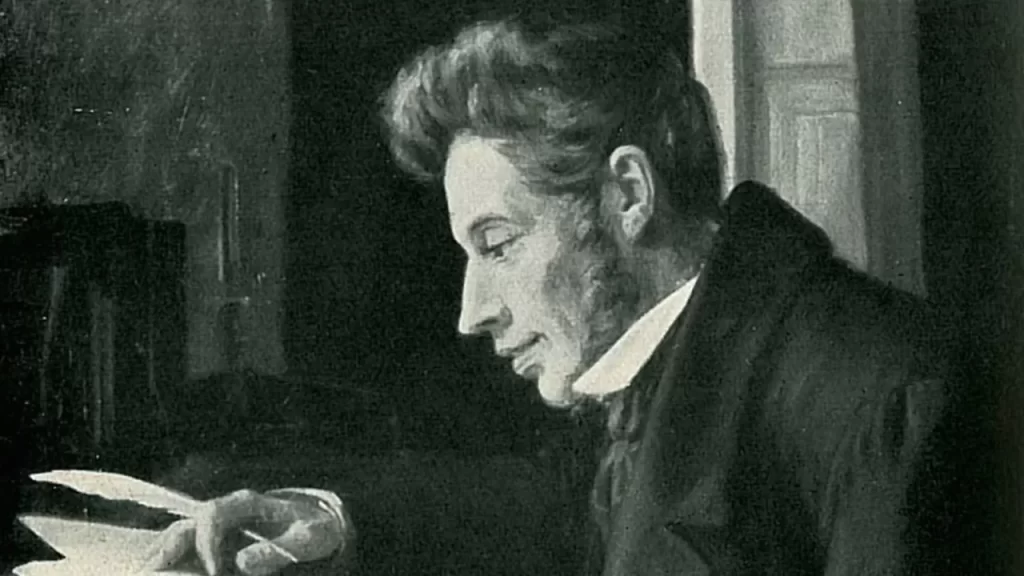
Søren Kierkegaard, often regarded as the father of existentialism, coped with a deep sense of existential dread that flooded his philosophical works. His intense self-reflection and struggles with love and faith contributed to his mental anguish. Kierkegaard’s complex relationship with his fiancée, Regine Olsen, and his fierce critique of societal norms left an permanent mark on his psychological well-being.
Interesting Fact: Kierkegaard’s pseudonymous works (under the name Johannes de Silentio), such as “Fear and Trembling,” presented different perspectives on existential themes, showing his multifaceted approach to philosophy. Kierkegaard’s emphasis on individual subjectivity and the leap of faith influenced existentialist thinkers like Jean-Paul Sartre.
Georg Wilhelm Friedrich Hegel (1770-1831)
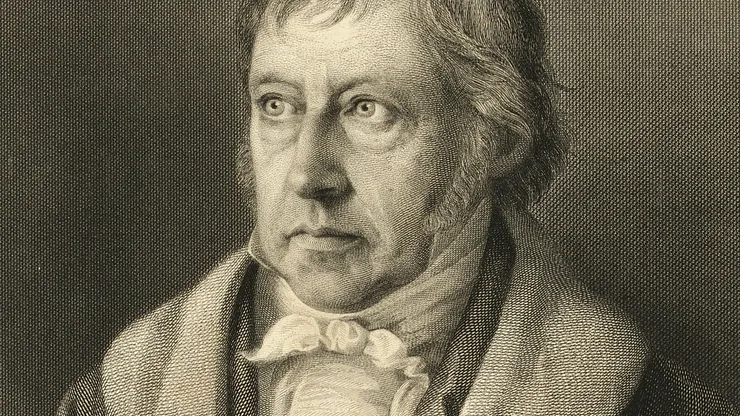
Georg Wilhelm Friedrich Hegel, known for his systematic philosophy, faced mental health challenges that manifested in depression and physical decline. Despite his monumental contributions to dialectical thinking, Hegel’s personal struggles, exacerbated by the deaths of loved ones (daughter died soon after birth), cast a darkness over his later years.
Interesting Fact: Hegel’s philosophical masterpiece, “The Phenomenology of Spirit,” remains one of the most challenging and influential works in the history of philosophy.
John Stuart Mill (1806-1873)
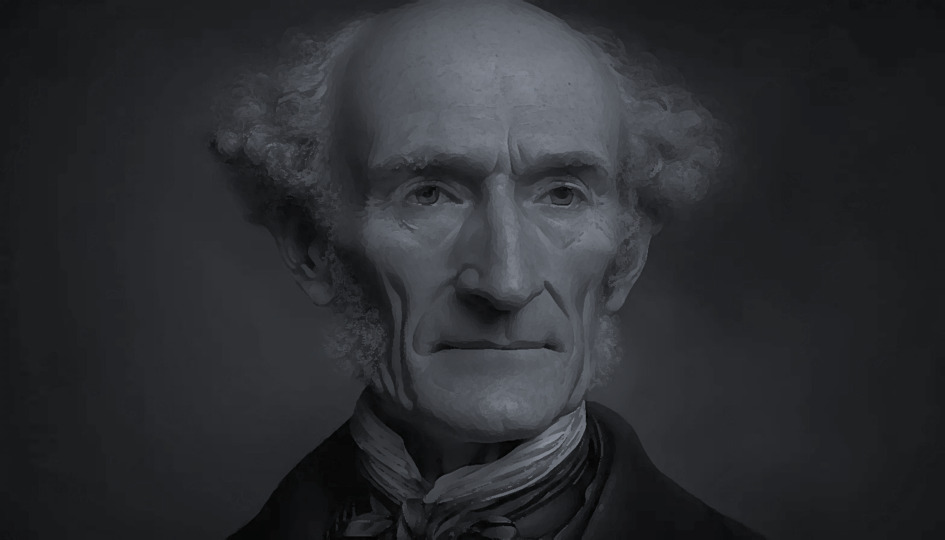
John Stuart Mill, a pioneer of utilitarianism, battled with depression and a sense of emptiness despite his intellectual accomplishments. Mill’s commitment to the principle of utility did not shield him from the personal toll of mental health struggles. His relationship with his wife, Harriet Taylor Mill, and the weight of societal expectations contributed to a profound sense of isolation.
Interesting Fact: Mill was a vocal advocate for individual freedoms and women’s rights, serving as a Member of Parliament and influencing the development of liberal thought. His utilitarian philosophy, outlined in works like “On Liberty” and “Utilitarianism,” remains foundational in many ethical discussions.
Martin Heidegger (1889-1976)
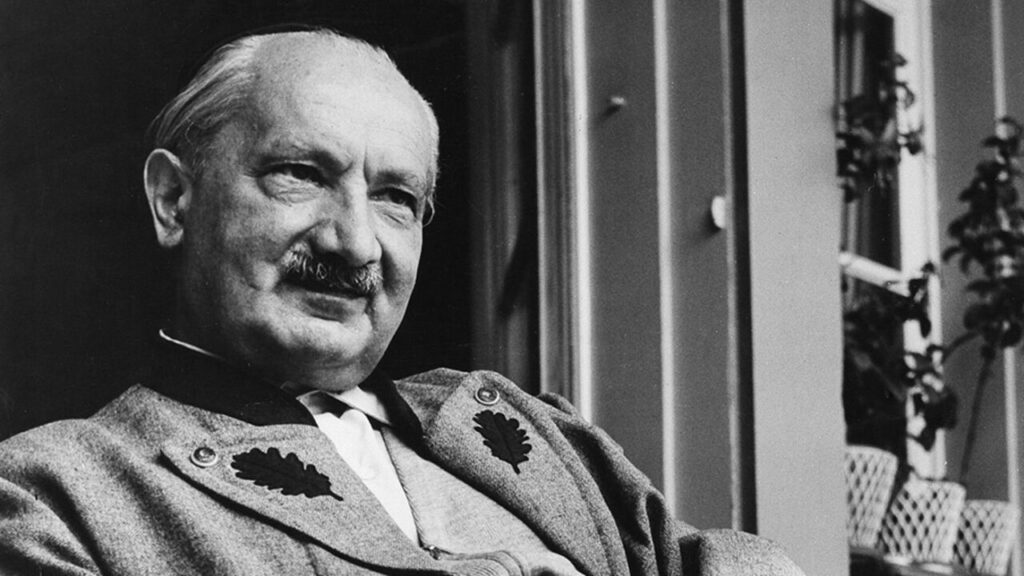
Martin Heidegger, a leading figure in existential phenomenology, faced a lot of controversy and personal turmoil. His involvement with the Nazi Party somehow stained his legacy, and his philosophical pursuits were intertwined with his political choices. Heidegger’s later years were marked by isolation, a deep sense of regret, and the acknowledgment of the consequences of his actions during the Nazi era.
Interesting Fact: A peculiar detail about Martin Heidegger is his fascination with forest trails. Heidegger was known for taking long walks, particularly in the Black Forest, and would often muse on profound philosophical ideas while navigating the trails.
In Conclusion

The exploration of these 10 philosophers provides a different view into the complicated relationship between intellectual brilliance and the fragility of the human mind.
The pursuit of philosophical truth is almost never without its profound costs.
These philosophers, in their relentless pursuit of understanding, grappled with inner demons that, in some cases, led to a descent into semi-madness.
And they are not the only one. As we’ve written in our articles; “The Top 10 Smartest People in the World” and “Top 10 People With Highest IQ In History,” people with great intellect often struggle with depression.
As people age, and especially deeply intelligent people, their depression and mental health problems become even more pronounced, especially when they come to realize their own imminent demise.




















